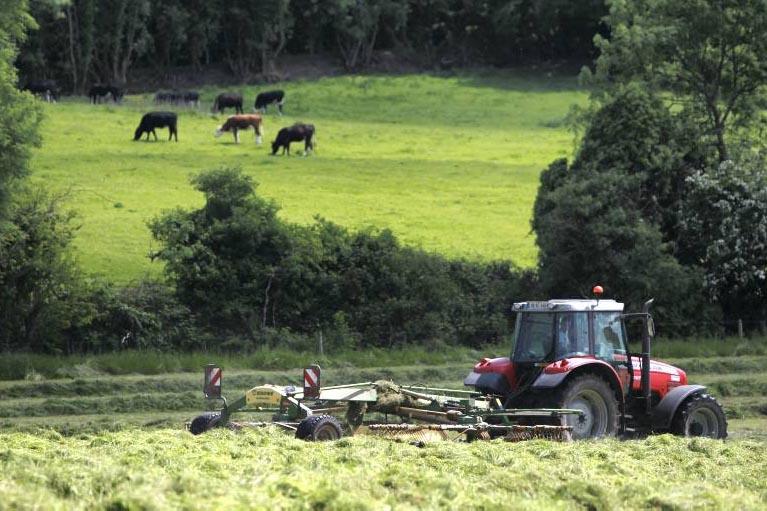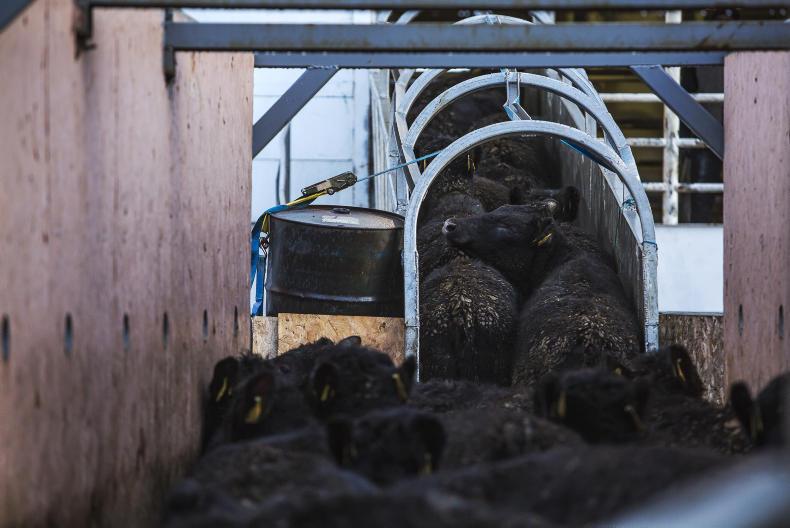The UK contributes between 5% and 10% of funding for the EU budget, while the Common Agriculture Policy (CAP) accounts for some 37% of the EU budget.
In parliament on Wednesday, Minister Creed was asked if he has assessed the effects of a British exit from the European Union on the food and agriculture industry.
“As Britain is a net contributor, this is likely to have a significant negative impact on future spending on the CAP, particularly from 2021 onwards. This will be the kernel of the issue that people may not realise,” he said. “We could expect additional pressure for further contraction in CAP funding in the years ahead.” .
Minister Creed added: “Currently, the EU operates a common regulatory regime and the rules of the single market allow free movement of goods between member states. While the EU and the UK may wish to keep such arrangements in place for as long as possible, deviations between UK and EU standards could give rise to trading difficulties and additional costs.”
Slightly less than 50% of Ireland’s beef exports are on supermarket shelves in the United Kingdom. This encapsulates the scale of the potential crisis we face
In the event of Brexit, Minister Creed also said that Ireland would lose an important ally in Europe for arguing its case.
Mercosur
The exclusion of beef in the Mercosur trade agreement, Minister Creed said, would be insignificant if the UK were to leave the EU. They would then be in a position to negotiate bilateral trade agreements with South America, he said.
“This is possibly one of the first things the United Kingdom would attempt to do... slightly less than 50% of Ireland’s beef exports are on supermarket shelves in the United Kingdom. This encapsulates the scale of the potential crisis we face.”
Border controls
Many issues would also arise for agriculture regarding border controls, according to Minister Creed, such as milk crossing the border from Northern Ireland to be processed in the Republic of Ireland.
“A lot of milk is gathered in Northern Ireland to be brought south of the border for processing. Given that this milk would now be crossing the border between the UK and the European Union, were Brexit to take place, issues would arise regarding border controls and so on. [This is] an issue of enormous economic concern, a matter of which the Department is acutely aware,” he said.
Read more
Full coverage: Brexit
Debate on Brexit heating up as the voting date looms
The UK contributes between 5% and 10% of funding for the EU budget, while the Common Agriculture Policy (CAP) accounts for some 37% of the EU budget.
In parliament on Wednesday, Minister Creed was asked if he has assessed the effects of a British exit from the European Union on the food and agriculture industry.
“As Britain is a net contributor, this is likely to have a significant negative impact on future spending on the CAP, particularly from 2021 onwards. This will be the kernel of the issue that people may not realise,” he said. “We could expect additional pressure for further contraction in CAP funding in the years ahead.” .
Minister Creed added: “Currently, the EU operates a common regulatory regime and the rules of the single market allow free movement of goods between member states. While the EU and the UK may wish to keep such arrangements in place for as long as possible, deviations between UK and EU standards could give rise to trading difficulties and additional costs.”
Slightly less than 50% of Ireland’s beef exports are on supermarket shelves in the United Kingdom. This encapsulates the scale of the potential crisis we face
In the event of Brexit, Minister Creed also said that Ireland would lose an important ally in Europe for arguing its case.
Mercosur
The exclusion of beef in the Mercosur trade agreement, Minister Creed said, would be insignificant if the UK were to leave the EU. They would then be in a position to negotiate bilateral trade agreements with South America, he said.
“This is possibly one of the first things the United Kingdom would attempt to do... slightly less than 50% of Ireland’s beef exports are on supermarket shelves in the United Kingdom. This encapsulates the scale of the potential crisis we face.”
Border controls
Many issues would also arise for agriculture regarding border controls, according to Minister Creed, such as milk crossing the border from Northern Ireland to be processed in the Republic of Ireland.
“A lot of milk is gathered in Northern Ireland to be brought south of the border for processing. Given that this milk would now be crossing the border between the UK and the European Union, were Brexit to take place, issues would arise regarding border controls and so on. [This is] an issue of enormous economic concern, a matter of which the Department is acutely aware,” he said.
Read more
Full coverage: Brexit
Debate on Brexit heating up as the voting date looms









SHARING OPTIONS